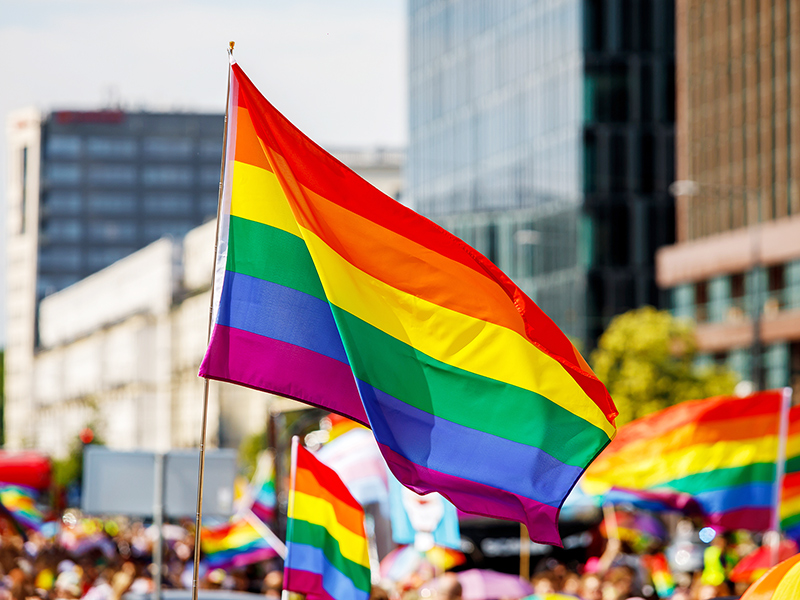
Authors
-
Margaret Jungk
Former Managing Director, Human Rights, BSR
-
Peter Nestor
Former Director, BSR
-

Senior Advisor, BSR
-
Farid Baddache
Former Managing Director, BSR
-
Roger McElrath
Former Associate Director, Human Rights, BSR
This is the second of a three-part series featuring our human rights experts’ reflections on the evolving business and human rights landscape in 2017, as well as their perspectives on emerging issues we anticipate in 2018.
Margaret Jungk, Managing Director, Human Rights (San Francisco)
Climate change, corruption, and tax evasion aren't usually thought of as human rights issues by lawmakers or the public, much less companies. But increasingly, that is changing, and I think this is an important trend to reflect on.
The expanding application of human rights seems to be driven by two things. First, human rights language highlights the direct, individual, and, well, human impact of things like climate change and tax evasion. Global trends do not occur in some cloud over everyone's head. They have real consequences on very real, often very vulnerable people, and this new way of talking about global issues highlights those impacts. Second, human rights language generates more traction and attention. For years, people said that there was no way to make something like tax avoidance by companies 'sexy,' and global citizens would never protest in the streets or write to their congressperson to address it. This new language contradicts that view, and has allowed advocates to shine light on complicated, long-term, and technical issues that went unnoticed for far too long.
Peter Nestor, Associate Director (San Francisco)
My key observation from the past year is the pace at which binding legal instruments now require companies to understand and manage their impact on human rights. More governments around the world are imposing legal requirements for human rights due diligence, reporting requirements, and responsibilities for human rights management in the supply chain.
In-house legal counsel are taking a fresh look at their human rights obligations, from a legal compliance standpoint as well as from a human rights perspective. The scope of responsibility is becoming clearer, and leading companies are testing new bounds of what's possible when companies manage, report, and proactively improve their human rights performance. BSR works increasingly with in-house counsel and outside law firms like White & Case to ensure that their lawyers are properly trained in advising corporate clients on human rights. My prediction for next year is that we'll see more lawyers embrace their expanded role as human rights advisors within companies.
Alison Taylor, Director, Sustainability Management (New York)
In 2017, we saw supply chain oversight come of age—particularly as a result of the U.K. Modern Slavery Act. The Act itself isn't perfect, but it is built on the presumption that companies are responsible for managing not just risks to operations, but also the impacts of those operations. Even where the Act falls short on enforcement, companies have received the message, loud and clear, that more laws like this are in the pipeline, and they have started seriously grappling with the impact of their external relationships. The human rights field’s focus on impact presents a core challenge to attempts to incorporate human rights into current compliance approaches. Practitioners will need to work hard to ensure companies maintain this focus, as it requires new thinking and frameworks.
This new landscape is extremely challenging for companies to navigate. At the moment, there is no standard good practice approach, and companies are also grappling with tradeoffs between transparency and liability when they try to openly acknowledge their challenges. But the expansion of corporate responsibility to issues like prostitution and victims' rights, even at the domestic level, sets a precedent that can be expanded.
Farid Baddache, Managing Director (Paris)
I found it very encouraging that over the past few years, we've seen so many organizations strengthen human rights into existing regulatory and business frameworks. Things like the IFC Sustainability Framework and Performance Standards, OECD Guidelines on Multinational Enterprises, ISO26000, Bilateral Investment Treaties, and stock exchange listing requirements may not earn headlines when they are updated or their requirements are tightened. Yet in 2017, these frameworks constitute the invisible architecture within which companies operate, and thus, the private sector takes them increasingly seriously. All of these structures are increasingly recognizing, and requiring, human rights protections.
It's something businesses are watching very closely, especially as they look to 2018 and more legislative developments on the way. In 2018, a company with more than 500 employees based under the EU Non-Financial Reporting Directive will have to report on human rights (this will be true for companies with more than 250 employees in some countries). Companies impacted by the U.K. Modern Slavery Act across the value chain will have to report on risks and mitigation plan for the second year—supplemented by a similar initiative from Australia in 2018. The largest German companies are expected to report to government on their human rights due diligence efforts in compliance with Germany’s UN Guiding Principles on Business and Human Rights Action Plan. French companies will have to disclose detailed due diligence reports in response to the 2017 Duty of Vigilance Law.
Soft law and hard law are converging to build an operating environment that asks companies to conduct robust documented due diligence, act upon the findings, and build trust in their capacity to mitigate risks by doing good business with respect to their human rights duties.
Roger McElrath, Associate Director (San Francisco)
The issue of living wages continues to gain momentum in policy discussions and corporate approaches to managing human rights. An adequate standard of living is a core element of human rights, and thus the concept of living wages is well established in the foundational instruments that set the parameters of international human rights.
Multinational corporations have come under increasing stakeholder pressure to address the issue of the adequacy of wage levels for their own employees as well as workers in their supply chains. There are challenges for companies in implementing living wage programs for their own employees, and the issues and complexity are equally significant when considering how to support living wages for workers in supply chains by exerting influence over their suppliers’ wage setting processes and/or host country laws and regulations.
In 2017, BSR has been actively involved in the implementation of living wage programs for a growing number of companies across a range of industries and locations spanning more than 100 countries, and our work includes establishing the scope of a program, creating internal management frameworks, calculating living wages, and engaging with country offices and external stakeholders. As the world of work continues to evolve as a result of old drivers, like global competition, and new drivers, like artificial intelligence, the issue of the adequacy of incomes and standards of living will bring even more attention to companies and the question of whether or not they and their suppliers are paying living wages.
BSR’s latest sustainability insights and events straight to your inbox.
Topics
Let’s talk about how BSR can help you to transform your business and achieve your sustainability goals.







